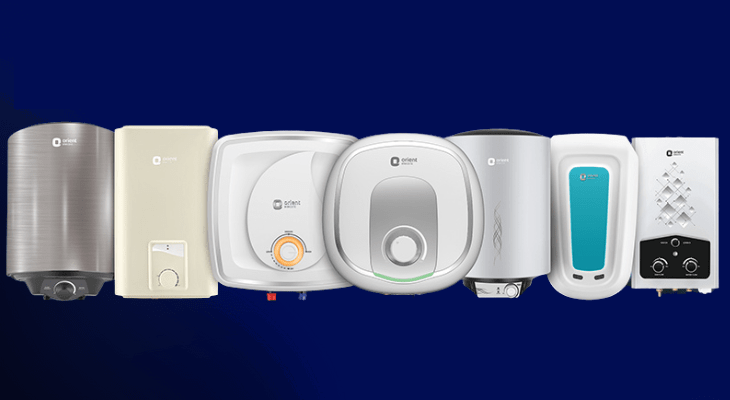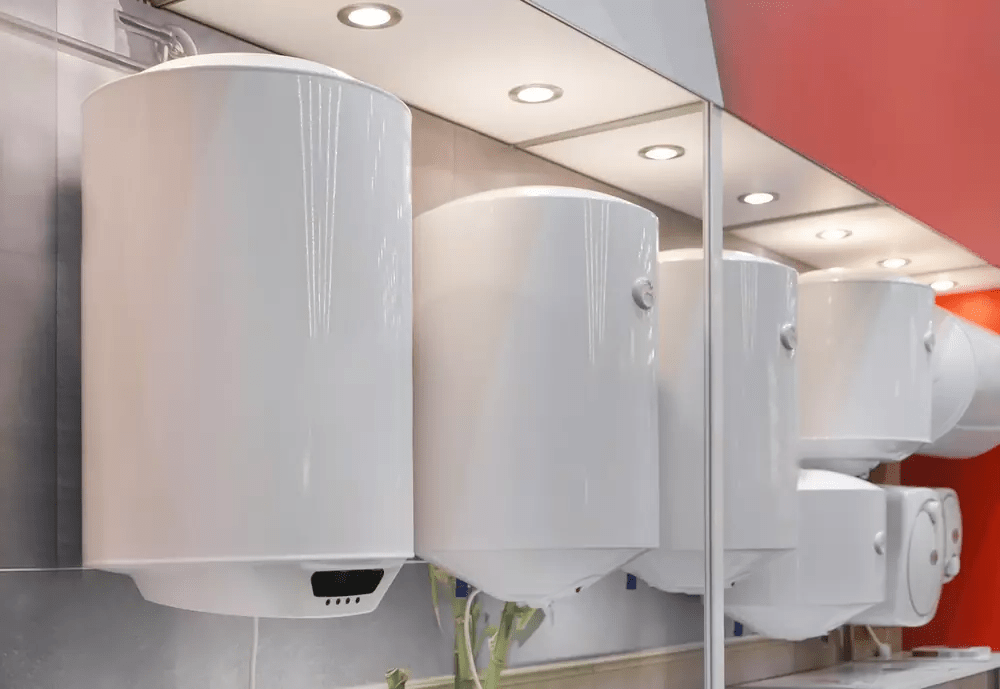Types of Water Heaters in India: A Comprehensive Guide to Choosing the Right One

This article will cover the various types of water heaters available, factors influencing choice, installation requirements, maintenance needs, and tips for selecting the most suitable option.
In India, where climates vary dramatically from region to region and household needs differ greatly, choosing the right water heater (geyser) is crucial for ensuring comfort, efficiency, and cost-effectiveness. This comprehensive guide will explore the various types of water heaters available in the Indian market, their pros and cons, and how to select the most suitable option for your specific needs.
Types of Water Heaters Available in India
1. Storage Water Heaters
Storage water heaters are the most common type found in Indian households. They store and heat a specific amount of water, making it available when needed.
Pros:
- High flow rate, supplying hot water to multiple outlets simultaneously
- Generally more affordable to purchase and install
- Simple to maintain and replace
Cons:
- Energy inefficient, as they continuously heat water to maintain temperature
- Limited supply; once depleted, there's a waiting period for refill and reheat
- Requires significant space for installation
Installation and Maintenance:
- Requires more space due to the storage tank
- Professional installation recommended for proper connection to water and electrical systems
- Regular maintenance includes checking the pressure relief valve, flushing the tank, and inspecting the anode rod
2. Instant (Tankless) Water Heaters
Instant water heaters heat water on demand without storing it, providing hot water almost immediately.
Pros:
- Energy-efficient, heating water only when needed
- Space-saving design
- Longer lifespan compared to storage tank heaters
Cons:
- Higher upfront cost for purchase and installation
- May struggle to supply hot water to multiple outlets simultaneously
- Requires regular maintenance to prevent mineral buildup
Installation and Maintenance:
- Can be installed in smaller spaces, such as under sinks or in small bathrooms
- Professional installation required due to system complexity
- Regular descaling necessary, especially in areas with hard water
3. Heat Pump Water Heaters
Heat pump water heaters use electricity to move heat from the air or ground to heat water, rather than generating heat directly.
Pros:
- Highly energy-efficient, up to three times more than conventional electric water heaters
- Environmentally friendly, reducing greenhouse gas emissions
Cons:
- Higher initial cost compared to traditional water heaters
- Requires more space for installation due to the compressor and air handler
- Less effective in colder climates
Installation and Maintenance:
- Needs a larger space with adequate airflow and ambient temperature
- Regular cleaning or replacement of air filters required
- Inspection of condensate drain and pan necessary to prevent blockages
4. Solar Water Heaters
Solar water heaters use solar panels to collect energy from the sun, which is then used to heat water stored in a tank.
Pros:
- Utilizes free solar energy, reducing utility bills
- Significantly reduces carbon footprint
Cons:
- High upfront cost for installation
- Performance affected by weather conditions; requires a backup system for cloudy days
Installation and Maintenance:
- Requires roof space for solar panels and a sunny location
- Professional installation crucial for proper alignment and connection
- Regular cleaning of solar panels and system checks for leaks
5. Gas Water Heaters
Gas water heaters use LPG or natural gas to heat water and are available in both storage and tankless varieties.
Pros:
- Efficient and potentially more cost-effective in areas where gas is cheaper than electricity
- Suitable for areas with frequent power outages
Cons:
- Requires proper ventilation for safety
- May have higher installation costs due to gas line requirements
Factors Influencing the Choice of Water Heater
When selecting a water heater in India, several factors should be considered:
- Family Size and Usage Patterns: Larger families or households with high hot water demand require water heaters with larger capacities or faster heating capabilities.
- Climate and Regional Considerations: In colder regions, a water heater with higher capacity or faster heating might be necessary, while in warmer climates, a smaller capacity heater might suffice.
- Energy Efficiency: Choose a water heater with a high energy efficiency rating to save on electricity bills and reduce environmental impact. Look for models with high Bureau of Energy Efficiency (BEE) star ratings.
- Water Hardness: In areas with hard water, opt for water heaters with anti-corrosion features or consider installing water softeners to prevent scaling.
- Installation Space: Consider the available space for installation. Tankless water heaters require less space compared to traditional storage water heaters.
- Safety Features: Ensure the water heater has safety features like thermal cut-off, pressure relief valves, and anti-corrosion tanks.
- Budget: Consider both the upfront cost and long-term operating costs when making a decision.
- Power Source Availability: The availability and cost of electricity, gas, or solar power in your area can influence your choice.
How to Choose the Right Water Heater for Your Needs
- Assess Your Hot Water Needs: Determine the average daily hot water consumption of your household to choose the appropriate capacity.
- Consider Your Climate: If you live in a region with cold winters, prioritize water heaters with faster heating capabilities or larger storage capacities.
- Evaluate Available Space: Measure the space where you plan to install the water heater to ensure it fits comfortably.
- Compare Energy Efficiency: Look for water heaters with high BEE star ratings to ensure long-term energy savings.
- Check Water Quality: If you live in an area with hard water, choose a water heater with anti-scaling features or consider additional water treatment options.
- Analyze Long-term Costs: While some water heaters may have higher upfront costs, they might offer significant savings in the long run due to lower operating costs.
- Consider Maintenance Requirements: Factor in the maintenance needs of different types of water heaters and choose one that aligns with your willingness and ability to perform regular upkeep.
- Consult with Professionals: Seek advice from licensed plumbers or energy consultants to help you make an informed decision based on your specific circumstances.
Conclusion
Choosing the right water heater in India requires careful consideration of various factors, including household size, climate, energy efficiency, and budget. By understanding the different types of water heaters available and their respective pros and cons, you can make an informed decision that best suits your specific needs. Remember to prioritize safety, efficiency, and long-term cost-effectiveness when making your choice. With the right water heater, you can ensure a comfortable and reliable hot water supply for your home while optimizing energy consumption and costs.

